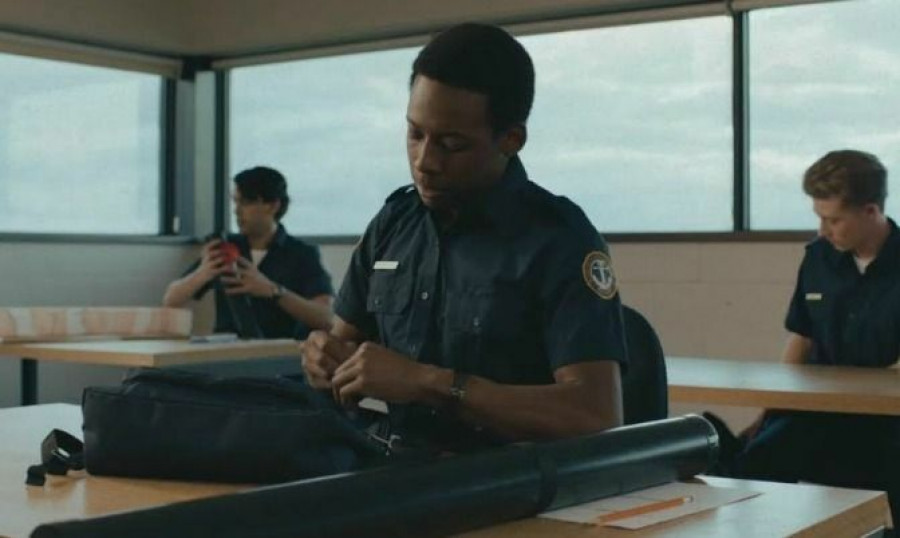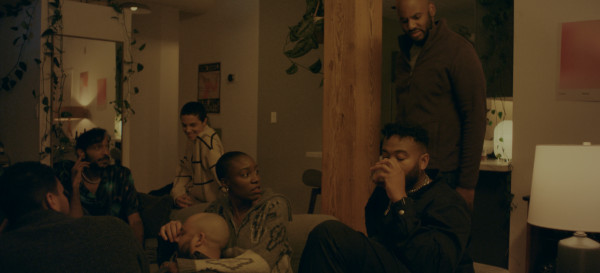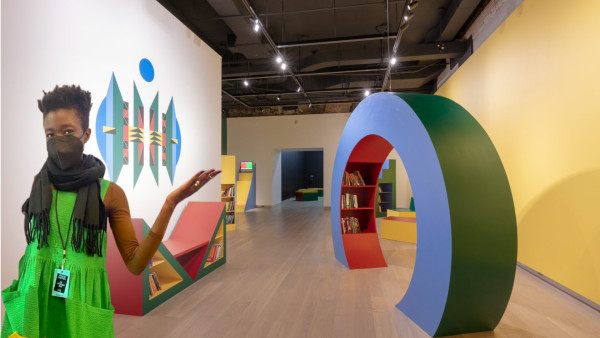Thyrone is no newbie to the world of film and cinema. In the past, the narrative director has written, directed and produced 4 short films with the support of juggernauts such as NBC Universal and the Ontario Arts Council, to name a few.
It is with this that he brings us MARINER: a film about an anxious young marine navigation student who fails his final exams when an incident from his past returns to both haunt and help him. As he continues through with the rest of the day’s exams, he notices an instructor who was never there before, despite his classmates saying otherwise. Through her, he is given a gift that is key to the story line.
But the story isn’t the most interesting part about MARINER. Director Thyrone has the ability to make the viewer experience extreme unease. In one of the film’s strongest (and strangest) scenes, the main character, Nate, pulls something out of himself that is extremely uncomfortable for the audience to watch.
“I’ve had weird moments in life and I’ve had to pull weird things out of myself sometimes from situations I’ve gotten into, so that’s what that’s about. [Pulling] things out of yourself – things that you need when you need them.” Thyrone explains.
The entire film – from musical composition to almost unbearable quietness – seems to serve the overall motifs of anxiety and discomfort. Each shot and angle represents the different sides of Nate. We see him under pressure. We see him let loose. We see him nervous. We see him focused and determined. Above all, we see a well-rounded character going through an experience that many of us can relate to – mariner or not.
“The whole intention behind the film is to constantly be in the mind of our character. He’s a very conflicted, contradicting character in that he has moments of complete confidence and moments of complete distress that he goes through almost at the same time.”
“When we were building the soundscape and the soundtrack, we were always thinking ‘where are we at in his mind? What is he feeling in this moment?”. This is what we want the audience to feel.”
Silence is also another strong contributor to the tone of the film. It’s in complete silence that we can almost read what the character is thinking. We truly get a sense of who he really is based on the decisions he makes.
“Silence is sound in many ways to me. Even when there is no music or when it gets quiet, for me that still is a soundtrack in some sense. It’s giving us insight into what someone’s feeling. Every decision when it came to sound was something that I had to think about on set then later on reinterpret to the sound designer and to the composer.”
What’s also interesting about MARINER is its focus on the character’s psyche. Not very often do we come across what it feels like to be a mariner – much less a black mariner – in a white-dominated field.
“It’s something I dealt with a lot when I was in college during my marine program. I really wanted to capture that feeling [and] all the anxiousness and pressure that we felt being one of the only black people not just in that school, but in the city and even in that industry.”
“The whole diversity angle was something that came up in conversation before. I felt like a lot of times as a black man working in different industries that sometimes people do things that they think are nice but not really. That was based on a few different situations [that] married into this one scene to show the other side of the pressure he’s going through outside of passing that very difficult exam,” Thyrone continues.
“Even now on set I feel sometimes the same kind of anxieties and some of the same pressures internally that I felt [in] college. I feel like they’re very connected in that way.”
“There’s not many working black directors in Canada. You always feel pressure to do more or be way better than you need to be because you think that you’re standing a little behind,” he concludes.
“It’s a weird concept because we as black directors are trying to be better and faster than we need to be, but it’s really not about us. It’s about other people opening themselves up to the idea that we are directors with stories to tell and that we tell stories just as good as anyone else. “
MARINER is part of TIFF's Short Cuts Programme.




![[REVIEW] King Of The Dancehall Fails To Rule](/media/k2/items/cache/8fff24d59ce766ab65e090a401680032_S.jpg?t=20210211_155347)


